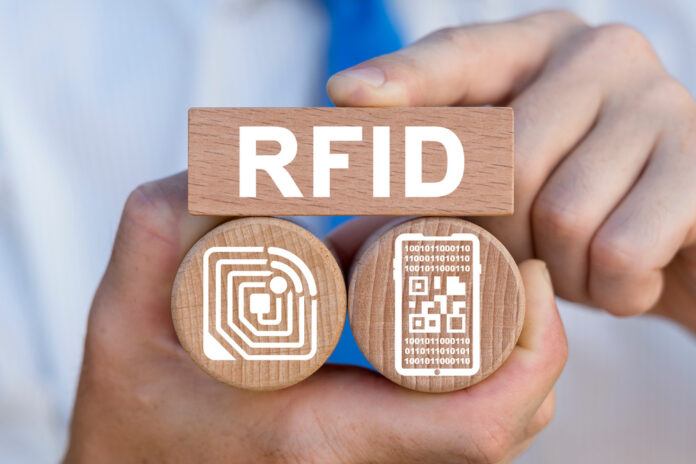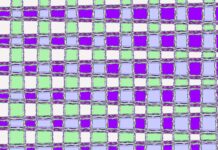Medication management can be challenging for clinics, hospitals, and other healthcare agencies dealing with many patients daily. One of the advancements in healthcare technology that can help with medication management is the utilization of radio frequency identification (RFID).
What Is RFID?
It’s a wireless form of identification utilizing electrostatic coupling or electromagnetism, widely seen in labels and barcodes. An RFID system consists of a fixed or mobile reader (combination of a scanning antenna and a transceiver) and a tag transponder.
The RFID technology greatly benefits the healthcare industry. It helps in efficient tracking, promoting patient safety, and health-related tasks, such as medication management. But how does RFID technology improve medication management? Read on below to find out more.
1. Ensures Item-Visibility Of Medications
Drug product inventory is a crucial aspect of medication management. During a pandemic crisis, healthcare facilities and agencies face challenges in drug inventory due to high demand. Therefore, item-level drug inventory management must be a priority to ensure more patients receive the drug and fewer medications are put to waste due to expiration.
These RFID medical solutions help ensure item-visibility of medications. The RFID tags and item-level visibility software can help provide accurate drug information to patients and healthcare professionals. These details include the drug’s lot number, expiration date, refrigeration date, and National Drug Code (NDC).
In addition, RFID medical solutions can help seamlessly manage medication recalls, shortages, and restocking issues.
2. Reduces Medication Errors
Medication errors can endanger a patient’s life. About 1.5 million people experience drug-related injuries annually, costing hospitals and health agencies an extra US$3.5 billion, which can otherwise be allocated to other health programs.
Examples of medication errors include dose miscalculation and failure to determine drug contraindications and interactions. Dispensing an incorrect drug or dosage form or strength is also common. Millions of people continue to suffer from drug-related injuries without a reliable medication-use workflow in hospitals and other healthcare facilities.
The traditional way of checking medications in trays in pharmacies and pharmaceutical departments is manual checking. Pharmacy technicians take a few minutes to review drugs in a single tray. Manual checking can be time-consuming and causes more human errors.
With RFID, the system scans RFID-tagged items and automatically compares them against the medications and quantities in a tray. Pharmacy technicians can view and generate a list of expired, close-to-expire, and administered drugs within seconds.
Pharmacy technicians can refill the trays based on the generated list. Each tray undergoes another scanning to ensure the accuracy of all restocked medications. The technician can print the report and send it to the patient care area along with the refilled medication tray.
3. Controls Prescription And High-Risk Medications
Opioid diversion, such as missing and stolen controlled substances, reflects loopholes in a hospital’s medication-use system. Unlawful distribution of opioids results poses safety concerns for patients and healthcare personnel. With RFID technology, hospitals and other healthcare facilities can lower or eliminate the incidence of opioid diversion and misuse.
The RFID technology can help quickly and accurately track prescription drugs, especially high-risk medications, like morphine, heroin, and other opioids and narcotics. Taking these prescription drugs has a high risk of abuse. Using RFID can help dramatically reduce related effects associated with these medications.
Pharmacy staff and healthcare professionals can attach RFID tags to the vials of controlled substances. In this way, the RFID tags automatically generate real-time data when dispensing controlled medications to anesthesia trays and nursing kits. The report includes the name of the patient, the time it was given, the nurse or healthcare worker who administered the drug, and more.
4. Combats Distribution of Counterfeit Drugs
The World Health Organization (WHO) reported that low- and middle-income countries have 1 in 10 counterfeit or substandard medical products, which can lead to treatment failure or death. Therefore, counterfeit drugs pose a major public health problem.
Using RFID technology is one way to prevent the distribution of counterfeit medications. Pharmacies, hospitals, and healthcare agencies can use RFID tags and readers to ensure that the drugs and medical supplies that they purchase are legitimate.
In addition, RFID technology can be used in tracking prescription drug shipments. Pharmaceutical companies and authorities can place unique electronic codes in drug packages before shipment. They can use RFID devices to accurately input all relevant information about medication supply chain transactions to combat the spread of falsified drugs.
Conclusion
To conclude, RFID technology significantly improves medication management in many ways. It’s essential in medication dosage calculation, administration, inventory, supply chain, and logistics. From new drug launching to patient care, RFID transforms how healthcare workers, companies, and agencies manage medication for safety and legal compliance.


















